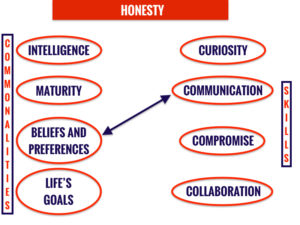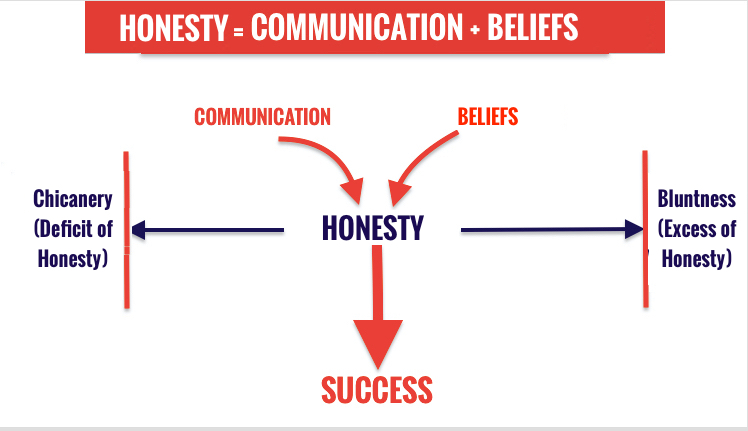
Communication can be looked at in various ways. Simply put, it is an expression of ideas that also likely carry emotional energy as well. This makes them similar to beliefs, which have the same structure, but the difference is that beliefs are contained within us, sometimes unconsciously, until expressed to others in communication.
What makes honesty unique as a character virtue, is that it illuminates something that you think is important, which others may think the same of. Consider it as only affecting certain others and not others who may or may not take well to the impression, because various factors. In this sense, it needs the intuition and conscience of solid, mature decision-making in selecting the right audience for the message, and also needs the Observing Ego necessary to match their needs and receptiveness. This makes sense, because any virtue has constructive, non-narcissistic aspects, and both mature decision-making balanced in conscience and intuition, as well as Observing Ego, the mature psychological feature.

We might then often see a couple have a falling out, because there was a lack of trust between the partners. This is given rise by either the experience of having intuition of their own. They pick up on a discomfort in themselves at being given too much access to your private experiences ("Too much information - TMI - comes to mind.) Alternatively their intuition you underestimated senses that something is "wrong" in your communication in terms of your ethics, that you have a chicanerous, alterior motive in your communication, and their "bullshit detector" is picking up on something not trustworthy and honest about you.
Honesty has bearing on our performance in phase three - intellectual attraction - step eight, where we seek to amplify the best virtues toward our goals.

